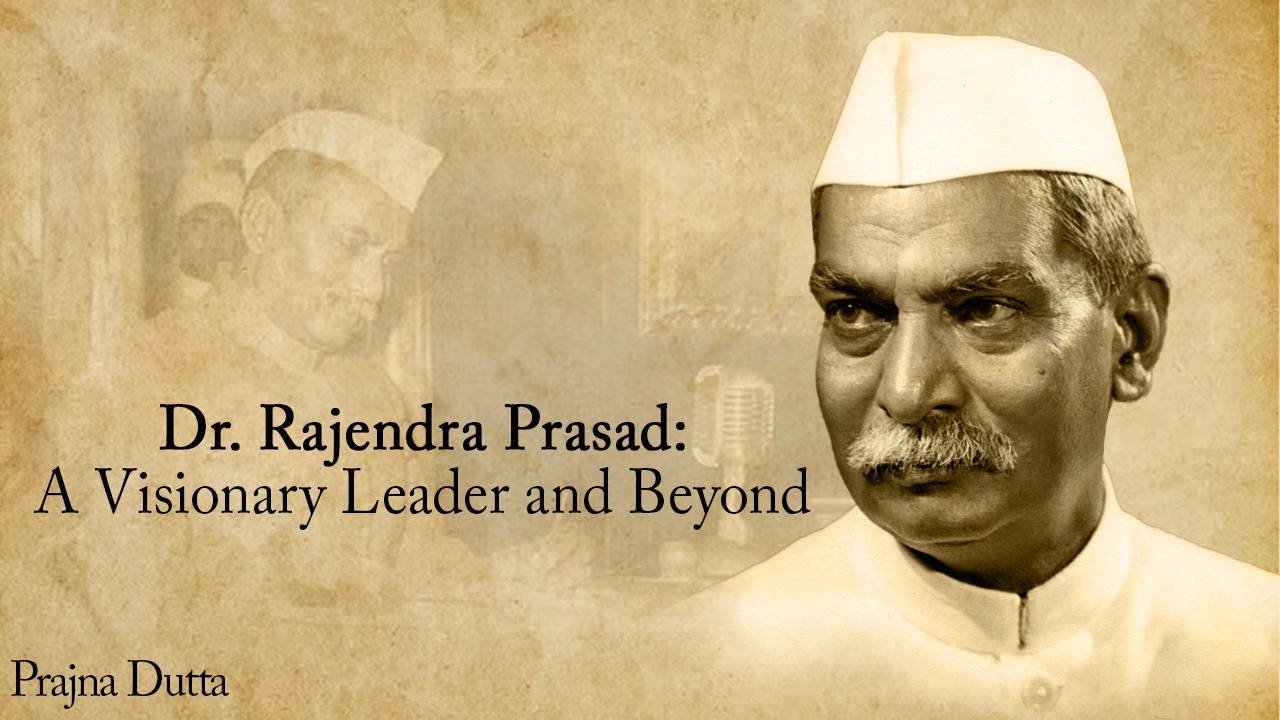Introduction:
Dr. Rajendra Prasad, a prominent figure in the Indian freedom struggle and the first President of independent India, played a pivotal role in shaping the nation's political landscape. His unwavering commitment to the principles of democracy, social justice, and inclusive governance made him one of the most revered leaders in Indian history. This article explores Dr. Rajendra Prasad's remarkable contributions to the politics of India and his lasting impact on the nation.
Early Life and Education:
Born on December 3, 1884, in Ziradei, Bihar, Rajendra Prasad hailed from a modest agricultural family. He pursued his education at the prestigious University of Calcutta, where he excelled in academics and attained a Masters in Law. Driven by a deep sense of nationalism, he actively participated in the freedom struggle and joined the Indian National Congress (INC) in 1911.
Contribution to the Freedom Struggle:
Dr. Rajendra Prasad's journey as a freedom fighter began with his involvement in the Champaran Satyagraha in 1917, where he supported Mahatma Gandhi's nonviolent resistance against the oppressive British indigo plantation system. This marked the beginning of a lifelong association between Prasad and Gandhi, leading him to actively participate in numerous civil disobedience movements, including the Salt Satyagraha and the Quit India Movement.
Leadership and Political Career:
Dr. Rajendra Prasad's leadership qualities and commitment to the cause of a free India propelled him to the forefront of Indian politics. He served as the President of the Indian National Congress in 1943 and 1939, earning the respect and admiration of his colleagues. Following India's independence in 1947, he was elected as the President of the Constituent Assembly, responsible for drafting the Constitution of India.
First President of India:
In 1950, when India became a republic, Dr. Rajendra Prasad was elected as the first President of India, a position he held for two consecutive terms until 1962. As President, he played a crucial role in establishing the office of the President as a symbol of unity and integrity of the nation. His presidency was marked by his unwavering commitment to democratic principles, social justice, and equality.
Legacy and Contributions:
Dr. Rajendra Prasad's contributions to the politics of India are manifold and continue to shape the nation's democratic fabric. His role in framing the Constitution of India, which enshrines the fundamental rights and principles of governance, remains his most significant contribution. As President, he acted as a custodian of the Constitution, ensuring its adherence and upholding the values of a democratic nation.
Furthermore, Dr. Prasad's leadership and statesmanship set a precedent for subsequent presidents and political leaders, emphasizing the importance of ethical governance, consensus-building, and a deep understanding of the needs of the people. His commitment to inclusive politics and social justice paved the way for policies focused on uplifting the marginalized sections of society.
Conclusion:
Dr. Rajendra Prasad's indelible imprint on the politics of India cannot be overstated. As a freedom fighter, leader, and the first President of India, he exemplified the highest standards of integrity, wisdom, and dedication to public service. His contributions to the nation's political landscape, particularly in drafting the Constitution and upholding democratic values, continue to guide and inspire generations of leaders and citizens alike. Dr. Rajendra Prasad's vision and tireless efforts laid the foundation for a democratic and inclusive India.
His life and work serve as a testament to the power of perseverance, moral courage, and unwavering commitment to the principles of justice and equality. As we reflect on his contributions, let us draw inspiration from his legacy and strive to build a nation that upholds the values he held dear.
In honoring Dr. Rajendra Prasad, we pay tribute to a visionary leader who played a pivotal role in shaping the politics of India. His unwavering dedication to the cause of freedom, his relentless pursuit of social justice, and his commitment to democratic ideals continue to guide us as we navigate the challenges of the present and work towards a brighter future.

bNIwghJXx
jXgyQWpbACSo
VgzEBmDl